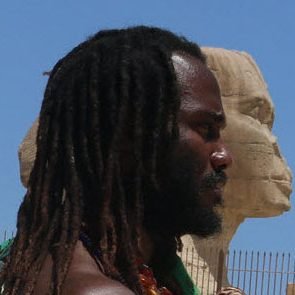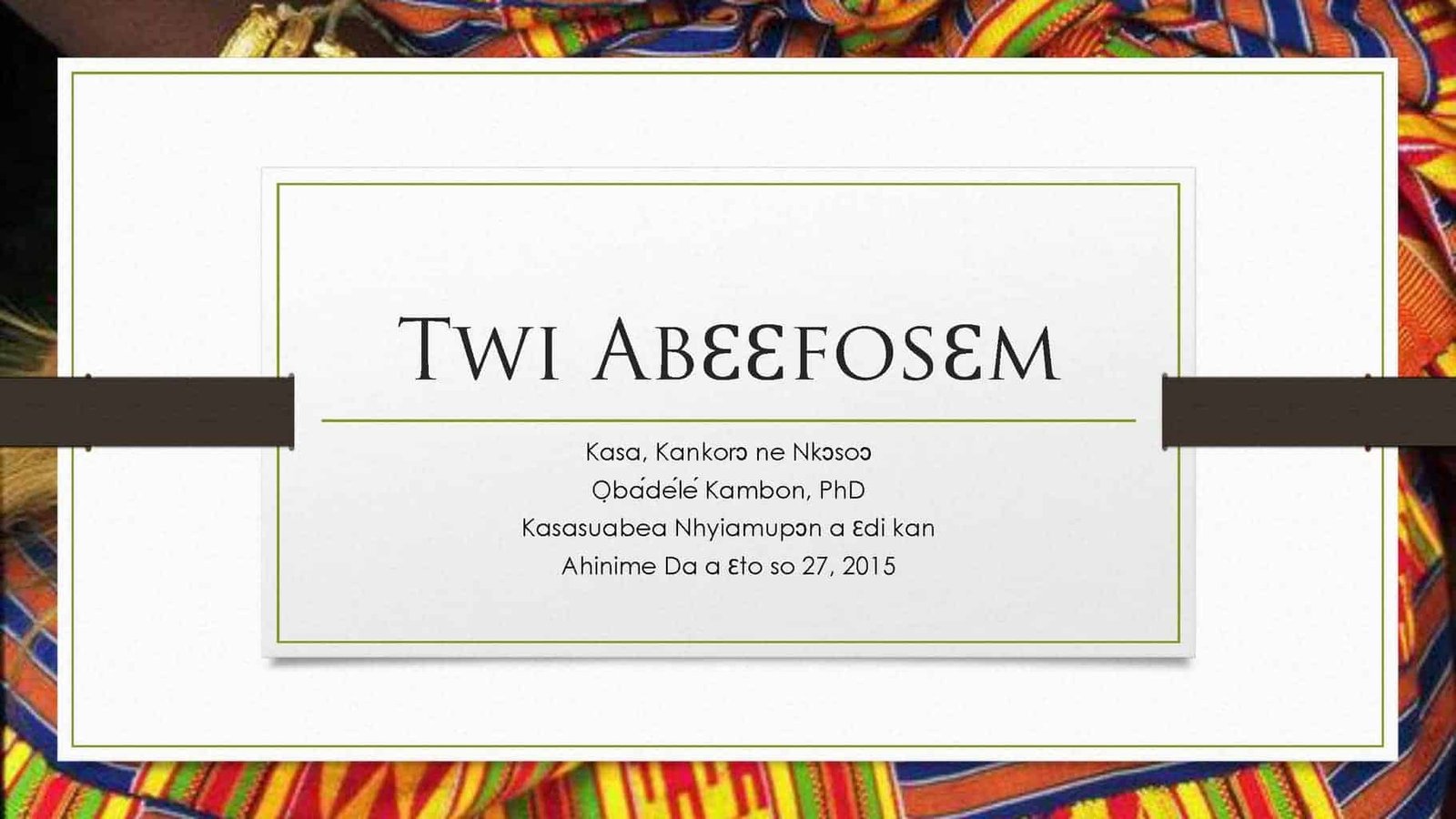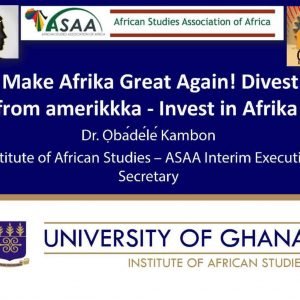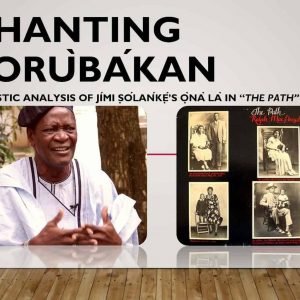$20.00
Description
Dr. Ọbádélé Kambon
Kasasuabea Nhyiamupɔn a Ɛdi Kan
School Of Languages Conference (SOLCON 1)
Ahinime Da a Ɛtɔ So Aduonu Nson, 2015
27 October, 2015
Video (Viewable Online) and Secured PDF of PowerPoint Presentation (downloadable) Combo Bundle
Video Duration: 36:41
Secured PDF of Lecture Slides: 61 Slides
Twi Abɛɛfosɛm: Kasa, Kankorɔ ne Nkɔsoɔ (Twi Neologisms: Language, Progress and Development)
Coirrowing Like English: Towards Methodology and Evaluative Criteria for Twi Neologisms
All natural languages have a variety of linguistic registers used by specialists in specific areas of activity (i.e., that of artisans, technicians, scholars, traders, rulers, etc.). In these linguistic registers, coinages or neologisms feature prominently as speakers address the exigencies of specialization and innovation within specific domains of discourse. In the creation and adoption of such coinages in these registers and (potentially) within the broader society, some of the primary considerations are 1) economy 2) accuracy and 3) utility. As such, this exploratory and theoretical research on coinages and neologisms intends to build upon the work of previous scholars (Warren and Andrews 1990, Anane 2000, Agyekum 2003, Boadi 2005, Agyekum, Osam and Sackey 2011, Agyekum, Apenteng-Sackey and Affol Forthcoming) in challenging the neo-colonial notion that African languages are “vernaculars.” This notion carries with it the latent, yet pervasive, implication that only one (underdeveloped/primitive) register existed in the past and, therefore, must exist now and into the future. In this study, both older and more modern coinages will be explored within the prism of the above considerations in an attempt to move the discourse beyond internal and external impediments to Akan (Twi) language development. In doing so, we will also challenge what we term the “backward, forward” paradigm in favor of a more eclectic approach with regard to marshalling Africa’s ancient and modern multilingual resources for development in both the linguistic and general senses of the term.



![Why Gandhi Must Fall [125 Slides + Video!!!]](https://obadelekambon.com/wp-content/uploads/2019/11/gandhi-300x300.jpg)


Leave a Reply